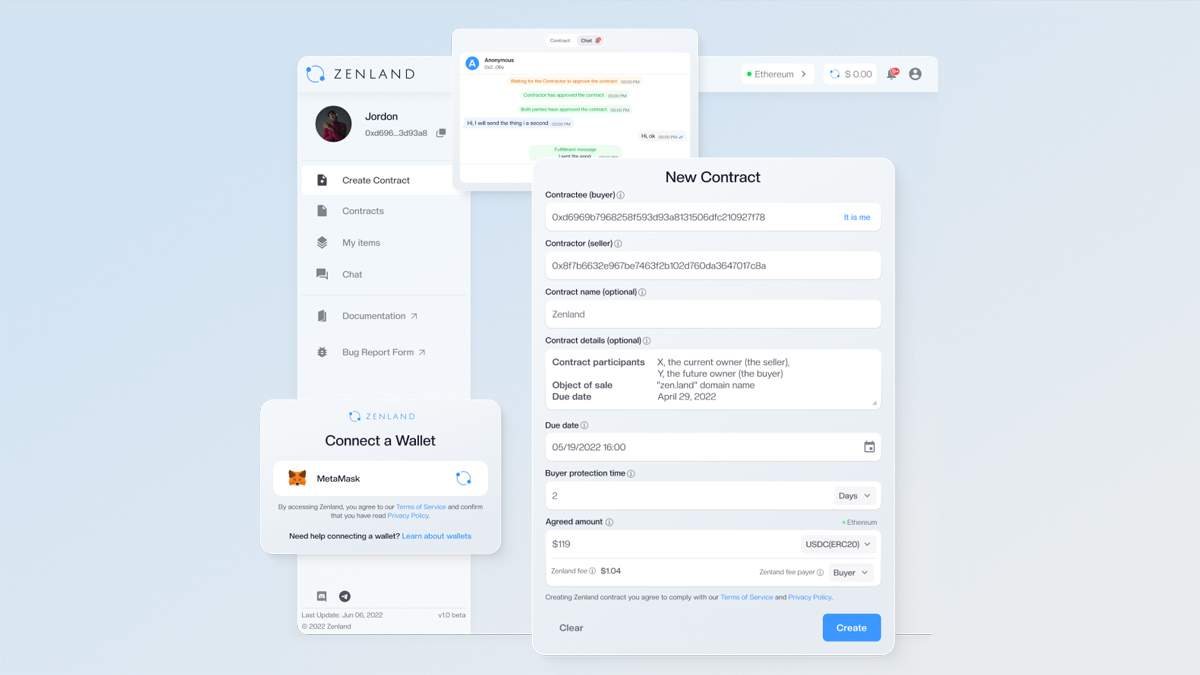When engaging in transactions that involve cryptocurrencies, using a reliable crypto escrow service like Zenland can significantly enhance the security and trust between parties. Zenland utilizes smart contract technology to provide a safe and efficient environment for handling crypto transactions. Here’s a step-by-step guide on how to use Zenland for crypto escrow, ensuring both parties are protected throughout the process.
Table of Contents
What is Crypto Escrow?
Crypto escrow is a financial arrangement where a third party holds and regulates the payment of the funds required for two parties involved in a given transaction. It helps make transactions more secure by keeping the payment in a secure escrow account which is only released when all of the terms of an agreement are met as overseen by the escrow company.
The Role of Crypto Escrow in Digital Transactions
In the realm of cryptocurrencies, escrow services provide an essential layer of security and trust. Given the irreversible nature of crypto transactions, escrow services mitigate the risk of fraud and default. Here’s how crypto escrow typically works in digital transactions:
- Agreement on Terms: Both parties agree to the terms of the transaction, which are then encoded into a smart contract. This contract defines the conditions under which the crypto funds will be released.
- Payment to Escrow: The buyer sends the cryptocurrency or tokens to the escrow service. This amount is held securely and is not released until the conditions of the agreement are satisfied.
- Fulfillment of Agreement: The seller delivers the promised goods or services to the buyer. In digital transactions, this could involve transferring domain names, digital art, or completing a service.
- Release of Funds: Once the buyer confirms the receipt and satisfaction with the goods or services, the escrow service releases the funds to the seller. If there are disputes, the escrow service can act as an arbitrator based on the agreed terms in the smart contract.
- Completion of Transaction: Once the funds are released, the transaction is completed, and both parties receive what they were promised.
Benefits of Using Crypto Escrow
- Security: Escrow protects the buyers and sellers by holding the funds securely until all parts of the agreement are fulfilled.
- Trust: It builds trust between parties who might not know each other. By using a neutral third party, both sides can be confident that the agreement will be honored.
- Mitigation of Fraud: The risk of fraud is reduced as the escrow service verifies the fulfillment of the agreement before releasing the funds.
- Dispute Resolution: In case of disputes, the terms encoded in the smart contract provide a clear basis for resolution, and the escrow service can help mediate solutions.
Crypto escrow services like Zenland utilize blockchain technology to offer these benefits with enhanced security and efficiency, making them an integral part of modern digital transactions.
What is Zenland?
Zenland is the first smart contract platform designed for safe and straightforward online deals. It allows users to create and execute escrow agreements on various Ethereum Virtual Machine (EVM) compatible networks, including Ethereum (ETH), Binance Smart Chain (BNB), Arbitrum (ARB) and Polygon (MATIC). Payments can be made in stablecoins such as USDT, USDC, BUSD, or DAI.
Getting Started with Zenland
Step 1: Login and Initial Setup First, log in to Zenland using the Metamask browser extension. Upon your first login, you’ll receive a default “Anonymous” username associated with your crypto wallet address. This information can later be customized in your Profile Settings.
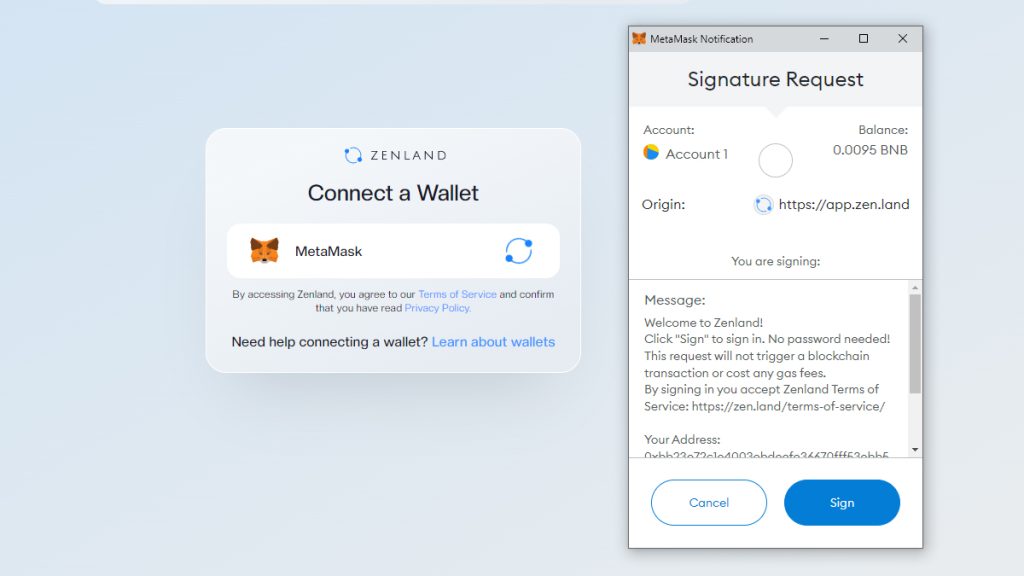
Step 2: Creating a Contract To create a new contract, you’ll need the wallet addresses of both parties involved in the transaction. The New Contract Form on Zenland requires these details and information on how the transaction will be executed, including the transfer conditions and buyer protection time.
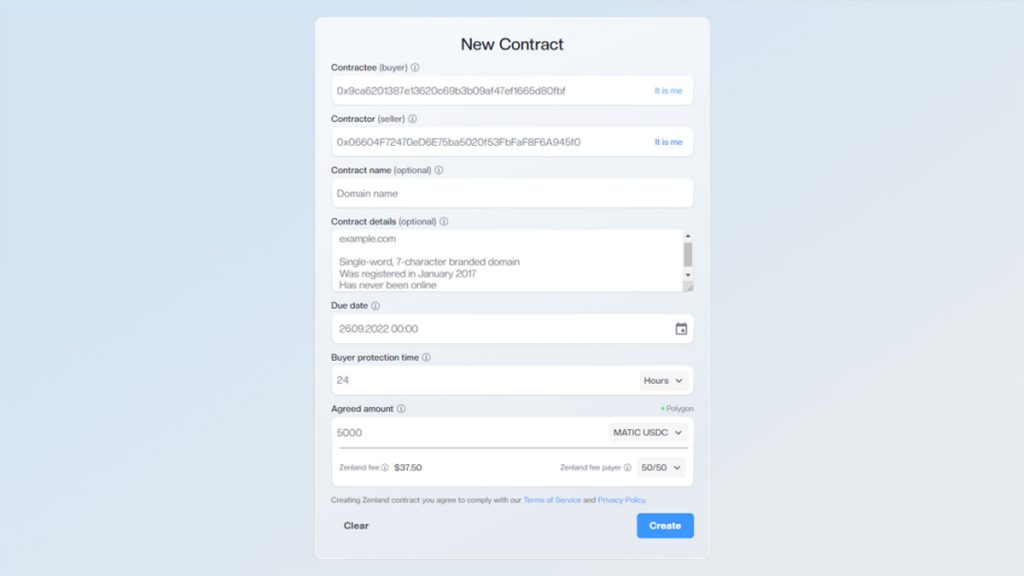
Step 3: Paying Zenland Fees Once the contract is created, you’ll need to deposit funds to cover the Zenland fee. In our example, user Y agrees to pay a fee of $9.9. This fee can be split between parties if agreed upon beforehand.
Step 4: Contract Approval and Deployment After reviewing the contract terms, the other party (user X in this case) will log in, review, and approve the contract. Once approved, user Y can deploy the contract to the selected blockchain network, giving it a unique contract address.
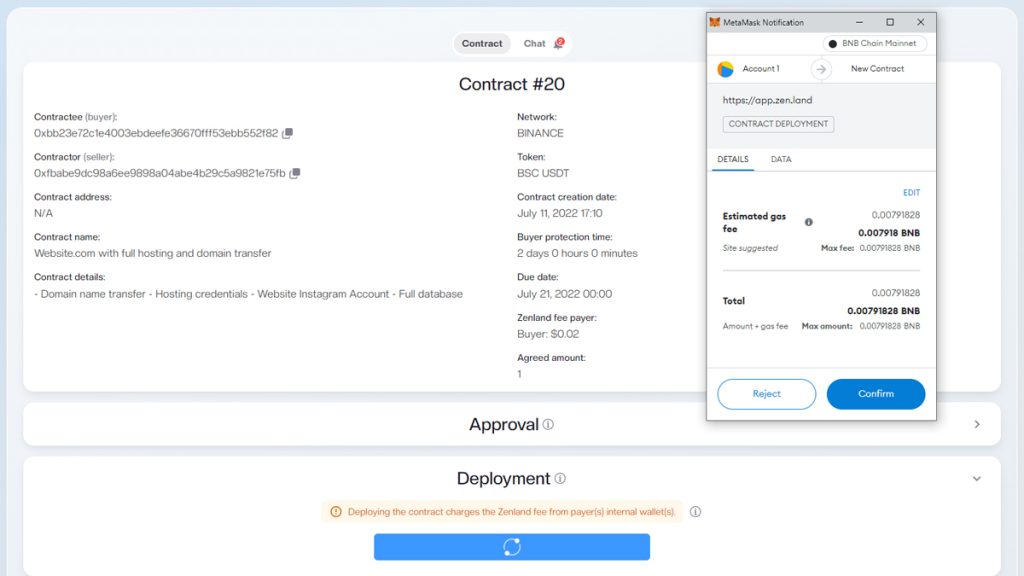
Step 5: Transferring Funds User Y will then transfer the agreed amount (1 USDT in this example) into the contract. This amount will be held securely by the contract until all conditions are met.
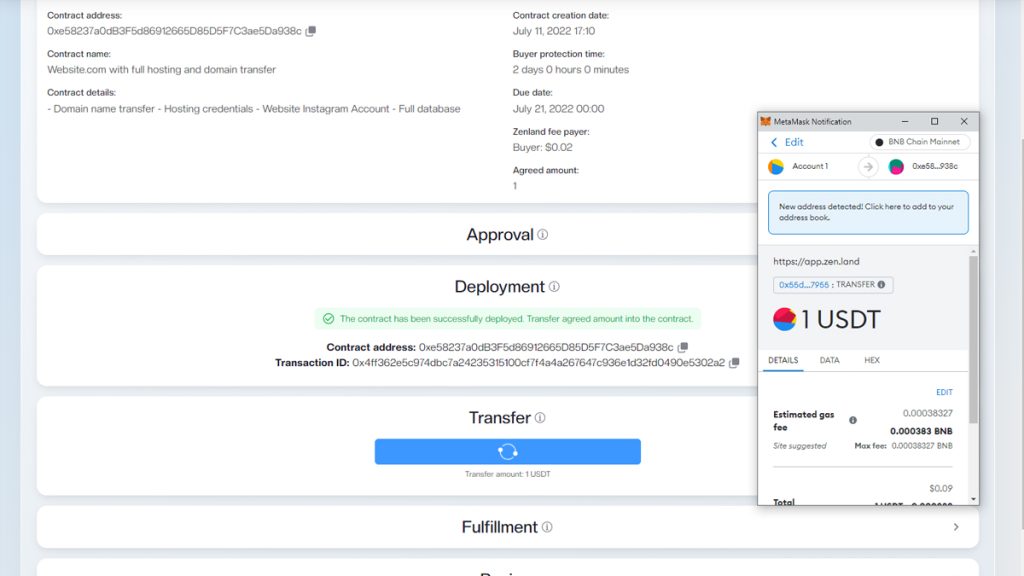
Step 6: Confirming Transaction and Releasing Funds Once user X confirms the transfer of the domain name or the object of sale, user Y can release the funds from the contract. This action will transfer the payment to the seller’s wallet address, completing the transaction.
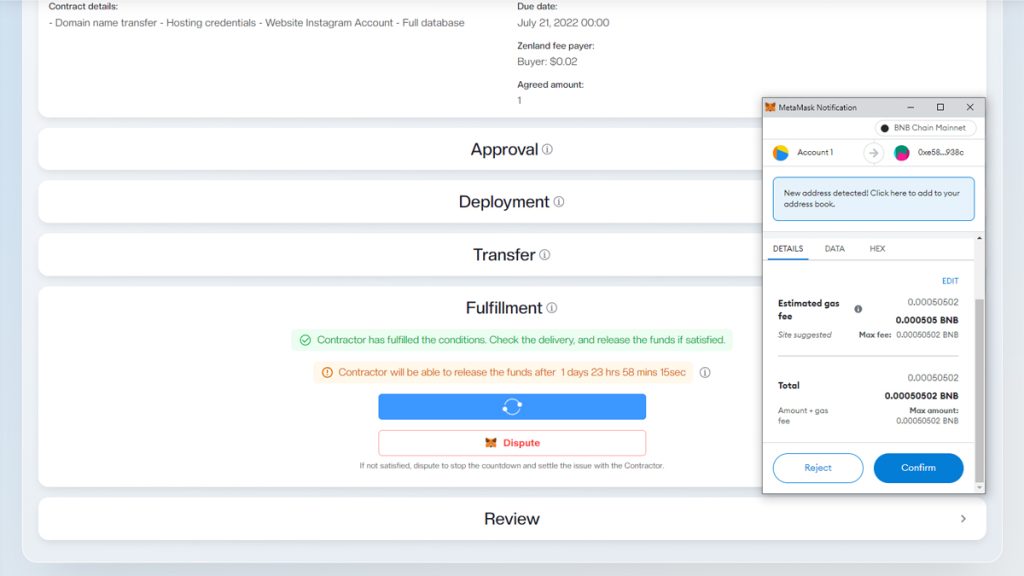
Security and Transparency
Zenland provides an additional layer of security by allowing parties to verify all contract details on the blockchain using tools like Etherscan. This transparency ensures that every transaction is secure and verifiable.
Conclusion
Using Zenland for your crypto escrow needs not only secures your transactions but also provides a clear, step-by-step process that can be easily followed by both beginners and experienced users alike. Whether you’re dealing in domains, digital goods, or services, Zenland’s platform ensures that all parties are protected, making online transactions safer and more reliable.
Frequently Asked Questions (FAQ)
1. What cryptocurrencies can I use for transactions on Zenland? You can use several stablecoins such as USDT, USDC, BUSD, and DAI for transactions on Zenland. These stablecoins represent stable value equivalent to the USD, making them ideal for secure transactions.
2. Is Zenland available on multiple blockchain networks? Yes, Zenland supports various Ethereum Virtual Machine (EVM) compatible networks, including Ethereum (ETH), Binance Smart Chain (BNB), Polygon (MATIC) and Arbitrum (ARB). This wide compatibility ensures that users can operate within their preferred blockchain ecosystems.
3. How secure is Zenland for handling escrow transactions? Zenland leverages the security and immutability of blockchain technology. All contracts are executed as smart contracts, which means that once terms are agreed upon and coded into the contract, they cannot be altered. This ensures a high level of security and trust as the contract enforces itself based on the coded conditions.

